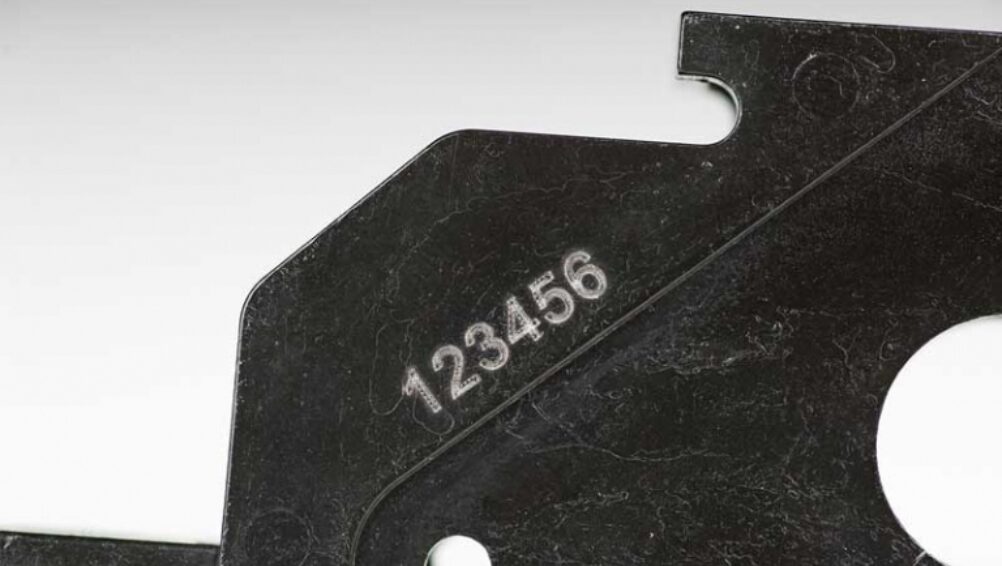At TYKMA Electrox, we’re dedicated to keeping our customers informed about the latest news within the laser marking industry, along with supplying them information regarding essential marking techniques.
We’ve previously written about the differences between laser marking, engraving and etching, as well as the 4 most common types of laser marking, though our focus in this post is on laser texturing, also known as laser surface texturing or laser ablating.
Defining Laser Texturing
Laser texturing or laser ablating is a process that creates a mark on a material by eliminating a section of the surface-coated layer on the material. What remains is a mark which is bright or white-colored, dependent upon the contrast created by the original coating.
Marks created through this process are relatively smooth to the touch, as the surface of the material is only minimally penetrated.
Exceed Your Production Expectations with a Laser Engraving System
Advantages of Laser Surface Texturing
Just like all forms of laser marking, laser surface texturing offers numerous benefits for companies’ operations, including:
- A reliable, repeatable process controlled by a modern computerized system
- Cost-efficiency due to a reduction in labor and production time compared to other traditional marking methods
- The ability to mark difficult to reach spaces on products
- An increased marking precision compared to methods such as acid etching, since the chemicals involved in that process can create depth variances resulting in a less uniform product
- A high level of control over surface microstructures which in turn helps to reduce the environmental impact of the process in comparison to other methods
- A significant reduction in waste, as well as the lack of need for any chemical reagents
As you can see, laser ablating your materials can bring about great results for your essential operations. Now let’s take a moment to look at how you can apply the laser texturing process to your business.
Laser Texturing Applications
Some of the products that laser surface texturing has been used in conjunction with include:
- Magnetic storage drives and assorted devices
- Thrust bearings
- MEMS devices
- Hydraulics equipment
- Seals
- Nano materials
- Metallic and dielectric films
- Engines
- Superconducting materials
- Solar cells
- Implants for bone and dental appliances
Laser ablating is also commonly used with black oxide, and materials which have been anodized, painted, or coated in some way.
Some additional materials well-suited for laser texturing include:
- Aluminum – By removing the rough oxide layer of aluminum, a strong contrast can be created between the material and the mark you are generating. Variances in the laser parameters can produce differing surfaces, with a shinier surface possible for increased contrast.
- Copper – Laser marking on copper is probably most often performed in an effort to create a contrast, though methods exist for producing a dark mark as well.
For a look at other materials that our laser marking systems are adept at working with, be sure to visit our materials page.
And if you’re wondering about potential applications for your specific sector, our industries page details a number of the common uses of our laser marking systems.
Contact TYKMA Electrox
If you have any questions about laser texturing and which system would be the best fit for your company, reach out to us because we’d love to help!

